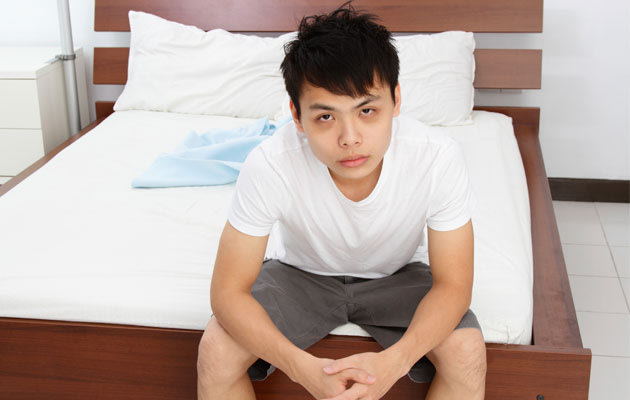Getting less than four hours of sleep every night and waking up early the next day almost seems to be the norm for many Singapore teenagers. Sleep problems can dampen your mood, zap your energy and reduce your concentration in school. Some gain weight or become depressed.
"Studies have shown that people who sleep less than four hours have higher mortality rates than those with seven-eight hours of sleep," says Dr Toh Song Tar, Consultant ENT Surgeon, Department ofOtolaryngology and Sleep Disorder Unit, Singapore General Hospital (SGH).
During sleep, the body releases a growth hormone that is important for physical growth in children and teens. Teenagers should get eight to nine hours of sleep every night, adds Dr Toh. Otherwise their physical growth may be affected.
So what causes teenagers to lose sleep?
Youths generally cite the following causes for their sleep problems:
- Worrying over unfinished business (school work, tests and exams)
- Playing video games late at night
- Online chats with friends
- Difficulty falling asleep (insomnia)
- Watching late-night television
- Stress
But there is also a biological explanation for the "sleep late, wake up early" syndrome in teenagers. The onset of puberty and a teenager's penchant for late nights may cause the body to delay melatonin production, a hormone which induces sleepiness and regulates sleep patterns.
Myths about sleep
- Loss of sleep can be compensated
Sleep debt cannot be compensated and chronic sleep deprivation can lead to obesity, hypertension and heart disease.
- Drinking alcohol can make you sleep better
Drinking alcohol at night may make you feel drowsy and sleepy, making it easier for you to fall asleep. But it will reduce REM sleep or deep sleep and cause multiple awakenings at night, thus affecting your overall sleep time and sleep quality. Over time, one would also need more and more alcohol to get to sleep.
- Exercising can overcome sleep problems
Depends on what time you exercise. Late-night exercising may not help with insomnia. At night, body temperatures normally fall as you prepare to sleep, while rigorous exercise temporarily raises your body temperature and keeps you wide awake. Avoid exercising at least four hours before bedtime.
6 tips to overcome sleep problems
1. Stay away from bright lights at night
This means stop watching television and playing computer games by a certain time. Avoid brightly lit objects such as mobile phones and iPads because light sends false messages to the brain that it is still day, and causes a delay in melatonin production.
2. Keep your computer or laptop away from your bedroom or bed
This may reduce the temptation to start playing computer games, watch videos, chat with friends or surf the Internet.
3. Keep a to-do list
Make a list of things you have not done before going to bed. This will ease your mind and stop you from thinking about unfinished business. An overactive mind can cause sleep problems.
Related article: 16 tips to cope with stress
4. Develop a regular sleep pattern
Try to sleep and wake up at about the same time every day. A regular sleep pattern helps you sleep better.
5. Avoid coffee and caffeinated drinks up to 14 hours before bedtime.
Caffeine is a stimulant which can stay in your body for up to 14 hours. If you are sensitive to caffeine, don't drink coffee after breakfast or caffeinated drinks after lunch to avoid sleep problems.
6. Drink a glass of warm milk
Drinking a glass of warm milk is relaxing. An amino acid called tryptophan, found in milk and banana, may help to induce sleep.
"Make small lifestyle changes such as watching less late-night television and refraining from playing computer games late into the night. Sleeping pills are best avoided as they can create a dependency. Only take them if they're prescribed by a doctor," says Dr Toh.
If you suffer from snoring and persistent sleep problems, do see a sleep specialist to rule out any underlying medical causes such as sleep apnoea, a condition in which the person doesn't breathe normally during sleep.
Read more here

No comments:
Post a Comment